LYSOFLAM MR TABLET
MRP ₹176.5
(Inclusive of all Taxes)
₹17.6 Cashback (10%)
Provide Delivery Location
Online payment accepted
 Prescription drug
Prescription drugWhats That
Composition :
Manufacturer/Marketer :
Consume Type :
Expires on or after :
Return Policy :
About LYSOFLAM MR TABLET
LYSOFLAM MR TABLET belongs to a class of medications called Non-steroidal anti-inflammatory drugs (NSAIDs) or pain killer used to reduce and relieve pain due to muscle spasms (excessive tension in the muscles). Muscle spasm is the sudden involuntary contractions of the muscle, which can be painful and uncomfortable. When the nerve impulses that control the muscle movements are damaged or interrupted, it could lead to muscle spasms.
LYSOFLAM MR TABLET contains Diclofenac and Metaxalone. Diclofenac works by blocking the effect of chemical messengers that cause pain and inflammation.Metaxalone works by blocking the nerve impulses and pain sensations in the brain, thereby helps in maintaining muscle strength and relieves muscle spasms or stiffness. Together, LYSOFLAM MR TABLET helps in relieving pain due to muscle spasms.
You are advised to take LYSOFLAM MR TABLET for as long as your doctor has prescribed it for you depending on your medical condition. In some cases, LYSOFLAM MR TABLET may cause common side-effects such as stomach pain, nausea, vomiting, diarrhoea, dizziness and headache. Most of these side-effects do not require medical attention and will resolve gradually over time. However, you are advised to talk to your doctor if you experience these side-effects persistently.
Consult your doctor if you are pregnant or breastfeeding. LYSOFLAM MR TABLET may cause drowsiness and dizziness, so drive only if you are alert. LYSOFLAM MR TABLET should not be given to children as safety and efficacy have not been established. Avoid consuming alcohol along with LYSOFLAM MR TABLET as it could lead to increased drowsiness and dizziness; it might also increase the risk of stomach bleeding. Keep your doctor informed about your health condition and medicines to rule out any side-effects.
Uses of LYSOFLAM MR TABLET
Directions for Use
Key Benefits
LYSOFLAM MR TABLET is a combination of two drugs: Diclofenac and Metaxalone. Diclofenac is an NSAID (Non-Steroidal Anti-Inflammatory Drug), and metaxalone is a skeletal muscle relaxant. LYSOFLAM MR TABLET is used to reduce and relieve pain due to muscle spasms (excessive tension in the muscles). Diclofenac works by blocking the effect of a chemical messenger in the body, known as cyclo-oxygenase (COX) enzymes that make another chemical prostaglandins. These prostaglandins are produced at injury sites and cause pain and swelling. By blocking the effect of COX enzymes, lesser prostaglandins are produced, which reduces mild to moderate pain and inflammation at the injured or damaged site. Metaxalone works on the centres of the spinal cord and brain, thereby helps in maintaining muscle strength and relieves muscle spasms or stiffness. Together, LYSOFLAM MR TABLET helps in relieving pain due to muscle spasms.
Storage
- Drink water or other clear fluids.
- To prevent worsening of pain, limit intake of tea, coffee, or alcohol.
- Include bland foods like rice, toast, crackers, and rice in your diet.
- Avoid lying down immediately after eating as it may cause indigestion or heartburn.
- Avoid acidic and spicy food as it may cause indigestion.
- Inform Your Doctor: Notify your doctor immediately about your diarrhoea symptoms. This allows them to adjust your medication or provide guidance on managing side effects.
- Stay Hydrated: Drink plenty of fluids to replace lost water and electrolytes. Choose water, clear broth, and electrolyte-rich drinks. Avoid carbonated or caffeinated beverages to effectively rehydrate your body.
- Follow a Bland Diet: Eat easy-to-digest foods to help firm up your stool and settle your stomach. Try incorporating bananas, rice, applesauce, toast, plain crackers, and boiled vegetables into your diet.
- Avoid Trigger Foods: Steer clear of foods that can worsen diarrhoea, such as spicy, fatty, or greasy foods, high-fibre foods, and dairy products (especially if you're lactose intolerant).
- Practice Good Hygiene: Maintain good hygiene to prevent the spread of infection. To stay healthy, wash your hands frequently, clean and disinfect surfaces regularly, and avoid exchanging personal belongings with others.
- Take Anti-Diarrheal Medications: If your doctor advises, anti-diarrheal medications such as loperamide might help manage diarrhoea symptoms. Always follow your doctor's directions.
- Keep track of your diarrhoea symptoms. If they don't get better or worse or are accompanied by severe stomach pain, blood, or dehydration signs (like extreme thirst or dark urine), seek medical help.
Drug Warnings
If you have had any recent heart surgery, do not take LYSOFLAM MR TABLET unless advised by the doctor as it may increase the risk of fatal heart attack or stroke. Do not take LYSOFLAM MR TABLET if you are allergic to any of its components, have severe heart failure, or have suffered bleeding problems such as bleeding from the stomach or bowels while taking any painkillers. Inform your doctor before taking LYSOFLAM MR TABLET if you have/had high blood pressure, heart problems, high cholesterol, diabetes, asthma, liver or kidney problems. Consult your doctor if you are pregnant or breastfeeding. LYSOFLAM MR TABLET may cause drowsiness and dizziness, so drive only if you are alert. LYSOFLAM MR TABLET should not be given to children as safety has not been established. Avoid consuming alcohol along with LYSOFLAM MR TABLET as it could lead to increased drowsiness and can increase the risk of stomach bleeding. Stop taking LYSOFLAM MR TABLET and consult your doctor immediately if you have stomach pain or any signs of bleeding in the intestine or stomach such as blood in stools. Do not take any other NSAIDs for pain relief along with LYSOFLAM MR TABLET unless prescribed. Keep your doctor informed about your health condition and medicines to rule out any side-effects.
Drug-Drug Interactions
Drug-Drug Interactions
Login/Sign Up
Co-administration of Lysoflam Mr Tablet with Meloxicam can increase the risk or severity of gastrointestinal side effects.
How to manage the interaction:
Taking Meloxicam with Lysoflam Mr Tablet is not recommended as it can possibly result in an interaction, it can be taken if your doctor has advised it. However, consult your doctor immediately if you experience symptoms such as dizziness, lightheadedness, red or black, tarry stools, coughing up or vomiting fresh or dried blood that looks like coffee grounds, severe headache, and weakness. Do not stop any medication without doctor's advise.
Taking Lysoflam Mr Tablet with Enoxaparin can increase the risk of bleeding complications.
How to manage the interaction:
There may be a possible interaction between Lysoflam Mr Tablet and Enoxaparin, but they can be taken together if your doctor has prescribed them. However, consult your doctor immediately if you experience any unusual bleeding or bruising, swelling, vomiting, blood in your urine or stools, headache, dizziness, or weakness. Do not discontinue any medications without consulting a doctor.
Coadministration of Lysoflam Mr Tablet with Ketoconazole may increase the risk of liver problems.
How to manage the interaction:
There may be a possible interaction between Lysoflam Mr Tablet and Ketoconazole, but they can be taken together if a doctor has prescribed them. However, consult a doctor immediately if you have fever, chills, joint pain or swelling, unusual bleeding or bruising, skin rash, itching, loss of appetite, fatigue, nausea, vomiting, abdominal pain, dark colored urine, light colored stools, and/or yellowing of the skin or eyes. Do not discontinue any medications without consulting a doctor.
Taking Lysoflam Mr Tablet with human immunoglobulin may increase the risk of kidney problems.
How to manage the interaction:
Although there is an interaction between Human immunoglobulin and Lysoflam Mr Tablet, you can take these medicines together if prescribed by a doctor. However, consult the doctor immediately if you experience symptoms such as nausea, vomiting, loss of appetite, increased or decreased urination, sudden weight gain or weight loss, fluid retention, swelling, shortness of breath, muscle cramps, tiredness, weakness, dizziness, confusion, and irregular heart rhythm. Do not discontinue any medications without consulting a doctor.
Taking Lysoflam Mr Tablet with Ibrutinib can increase the risk of bleeding tendencies.
How to manage the interaction:
There may be a possible interaction between Lysoflam Mr Tablet and Ibrutinib, but they can be taken together if a doctor has prescribed them. However, consult a doctor immediately if you experience any unusual bleeding, dizziness, lightheadedness, red or black, tarry stools, coughing up or vomiting fresh or dried blood that looks like coffee grounds, or severe headaches. Do not discontinue any medications without consulting a doctor.
Co-administration of Lysoflam Mr Tablet with Celecoxib may increase the risk of stomach bleeding and ulcers.
How to manage the interaction:
Although there is a interaction between Lysoflam Mr Tablet and Celecoxib, but it can be taken if your doctor has advised it. Consult a doctor if you experience symptoms like blood in your urine or stool (or a black stool), severe bruising, prolonged nosebleeds, feeling dizzy or lightheaded, weakness or severe headache, vomiting blood or coughing up blood, heavy menstrual bleeding (in women), difficulty breathing, or chest pain. Do not discontinue any medication without consulting a doctor.
Co administration of Lysoflam Mr Tablet with Leflunomide may result in liver problems.
How to manage the interaction:
Co-administration of Lysoflam Mr Tablet and Leflunomide can lead to an interaction; it can be taken if advised by your doctor. However, if you have a fever, chills, joint pain or swelling, unusual bleeding or bruising, skin rash, itching, loss of appetite, fatigue, nausea, vomiting, abdominal pain, dark-colored urine, light-colored stools, or yellowing of the skin or eyes. Do not stop using any medication without consulting your doctor.
Concomitant administration of Lysoflam Mr Tablet and furosemide may decrease the therapeutic efficacy of furosemide and adversely affect renal function.
How to manage the interaction:
There may be a possible interaction between Lysoflam Mr Tablet and furosemide, but they can be taken together if your doctor has prescribed them. However, consult your doctor immediately if you experience symptoms like nausea, dizziness, irregular heartbeats, altered blood pressure, tingling. Do not stop using any medications without first talking to your doctor.
Co-administration of Lysoflam Mr Tablet and tenofovir alafenamide may cause kidney problems.
How to manage the interaction:
There may be a possible interaction between Lysoflam Mr Tablet and Tenofovir alafenamide but they can be taken together if your doctor has prescribed them. However, consult your doctor immediately if you experience symptoms such as such as nausea, vomiting, loss of appetite, increased or decreased urination, sudden weight gain or weight loss, fluid retention, swelling, shortness of breath, bone pain, muscle cramps, tiredness, weakness, dizziness, confusion, and irregular heart rhythm. Do not stop using any medications without talking to your doctor.
Taking Dasatinib together with Lysoflam Mr Tablet may increase the risk of bleeding.
How to manage the interaction:
There may be a possible interaction between Lysoflam Mr Tablet and Dasatinib but they can be taken together if a doctor has prescribed them. However, consult a doctor immediately if you experience dizziness, red or black, tarry stools, or severe headaches. Do not discontinue any medications without consulting a doctor.
Drug-Food Interactions
Drug-Food Interactions
Login/Sign Up
Diet & Lifestyle Advise
- Exercising regularly helps in muscle stretching so that they are less likely to spasm, tear and sprain. Mild exercises such as jogging and walking are helpful for muscle stretching.
- Massages can also be helpful.
- Avoid freezing and hot temperatures.
- Avoid wearing tight-fitting clothes, instead, wear loose garments.
- Rest well, get plenty of sleep.
- To avoid developing pressure sores, change your position at least every two hours.
- Hot or cold therapy can help treat muscle spasms. Apply an ice-pack or hot-pack on the muscle for 15-20minutes.
- Stay hydrated, drink plenty of water.
Side Effects of LYSOFLAM MR TABLET
- Stomach pain
- Nausea
- Vomiting
- Diarrhoea
- Dizziness
- Headache
Habit Forming
Therapeutic Class
All Substitutes & Brand Comparisons
RX
Out of StockXaldinac Tablet 10's
Brainwave Healthcare Pvt Ltd
₹105
(₹9.45 per unit)
40% CHEAPERRX
DFO MR Tablet 10's
Ozone Pharmaceuticals Ltd
₹123.5
(₹11.12 per unit)
30% CHEAPERRX
Out of StockBoliflame-D Tablet
₹137
(₹12.33 per unit)
22% CHEAPER
Author Details
We provide you with authentic, trustworthy and relevant information
Drug-Diseases Interactions
Drug-Diseases Interactions
Login/Sign Up
FAQs
Drug-Drug Interactions Checker List
- DULOXETINE
- IBUPROFEN
- ASPIRIN
- NAPROXEN
- ACETAMINOPHEN
- HYDROCODONE
- OXYCODONE
- TRAMADOL
- HYDROCHLOROTHIAZIDE
- LISINOPRIL
- METOPROLOL
- PREDNISONE
- RIVAROXABAN
- ZOLPIDEM
- DIPHENHYDRAMINE
- CETIRIZINE
- GABAPENTIN
- CLONAZEPAM
- PREGABALIN
- ESCITALOPRAM
- SERTRALINE
- DIAZEPAM
- ALPRAZOLAM
- LORAZEPAM
Disease/Condition Glossary
Muscle spasm: It is the sudden involuntary contractions of the muscle, which can be painful and uncomfortable. When the nerve impulses that control the muscle movements are damaged or interrupted, it could lead to muscle spasms. Symptoms include muscle tightness, joint stiffness, unusual posture, difficulty in moving, pain in affected muscles and joints. Fatigue (weakness), stress, extreme heat or cold, infection and tight clothing can trigger muscle spasms. Muscle relaxants and exercise can treat muscle spasms. Muscle relaxants sedate the muscle and help in inhibiting painful contractions. Whereas, exercise helps in muscle stretching so that they are less likely to spasm, tear and sprain.

Have a query?
Alcohol
Safe if prescribed
Avoid consumption of alcohol while taking LYSOFLAM MR TABLET as it may cause increased drowsiness. It may also increase the risk of stomach bleeding.
Pregnancy
Consult your doctor
Please consult your doctor if you have any concerns regarding this; your doctor will prescribe only if the benefits outweigh the risks.
Breast Feeding
Consult your doctor
Consult your doctor before taking LYSOFLAM MR TABLET; your doctor will decide whether LYSOFLAM MR TABLET can be taken by breastfeeding mothers or not.
Driving
Safe if prescribed
LYSOFLAM MR TABLET may cause drowsiness. Do not drive or operate machinery unless you are alert.
Liver
Consult your doctor
Dose adjustment may be needed in patients with liver impairment. Please consult your doctor if you have a liver impairment or any concerns regarding this.
Kidney
Consult your doctor
Dose adjustment may be needed in patients with kidney impairment. Please consult your doctor if you have kidney impairment or any concerns regarding this.
Children
Safe if prescribed
LYSOFLAM MR TABLET should not be given to children as the safety and effectiveness were not established.


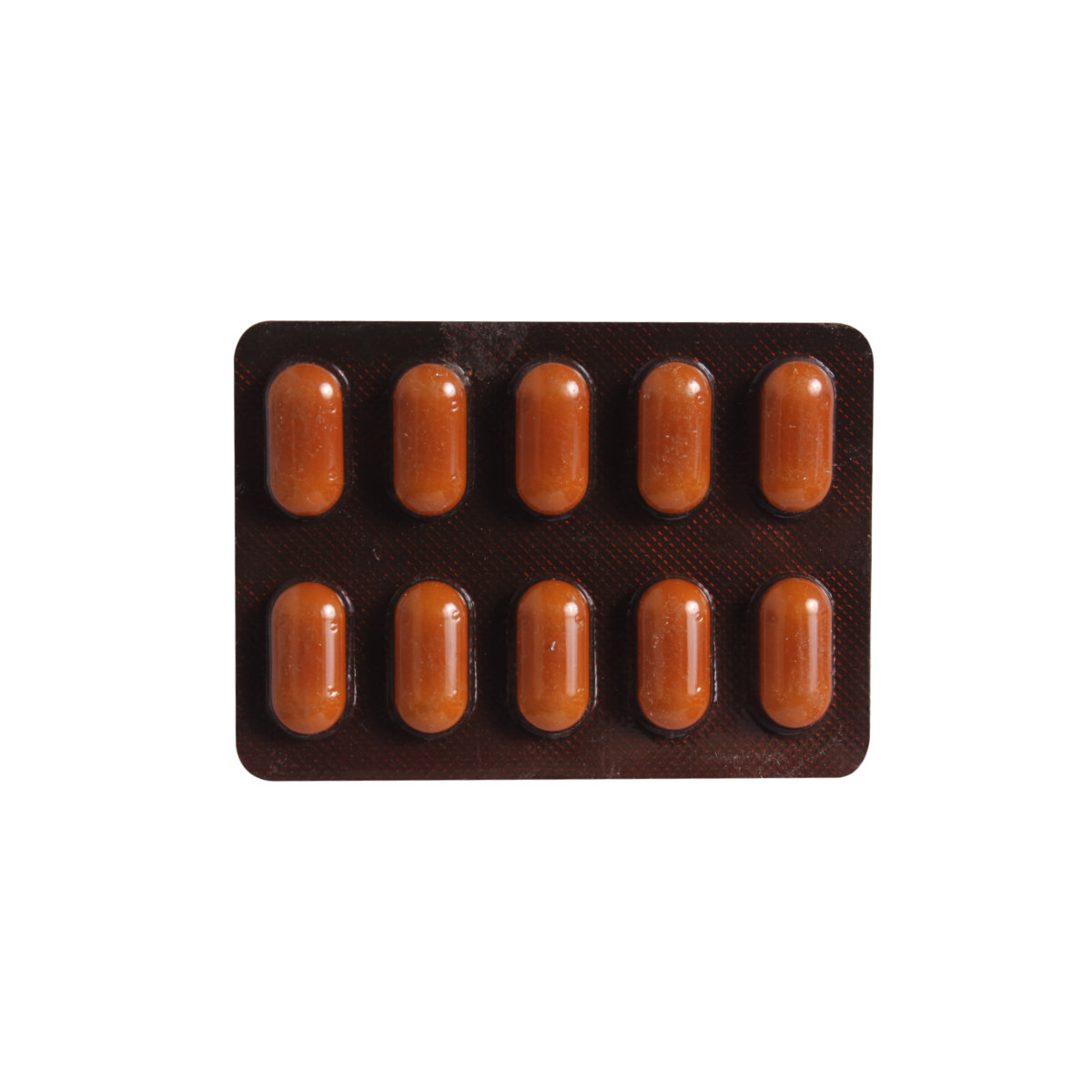




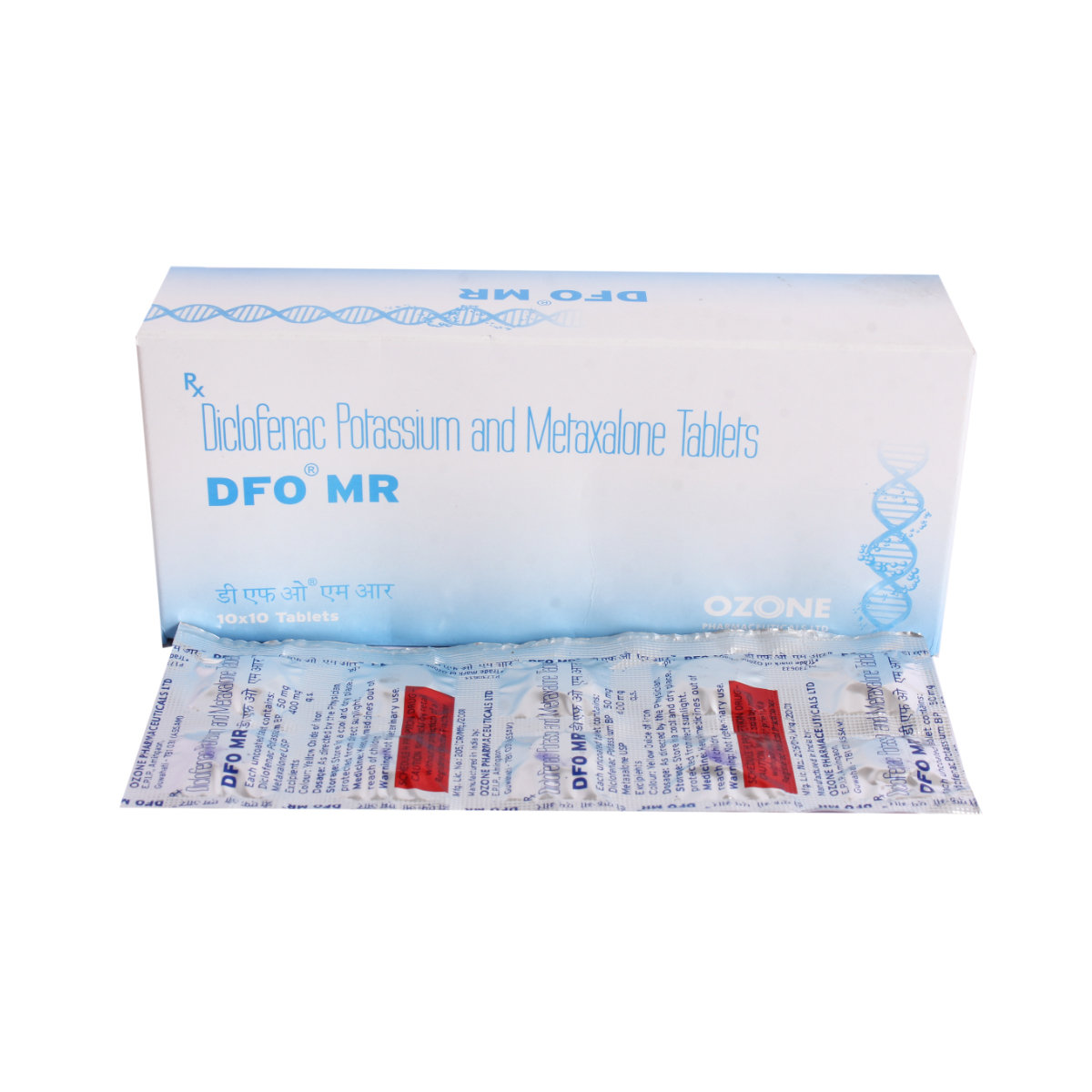
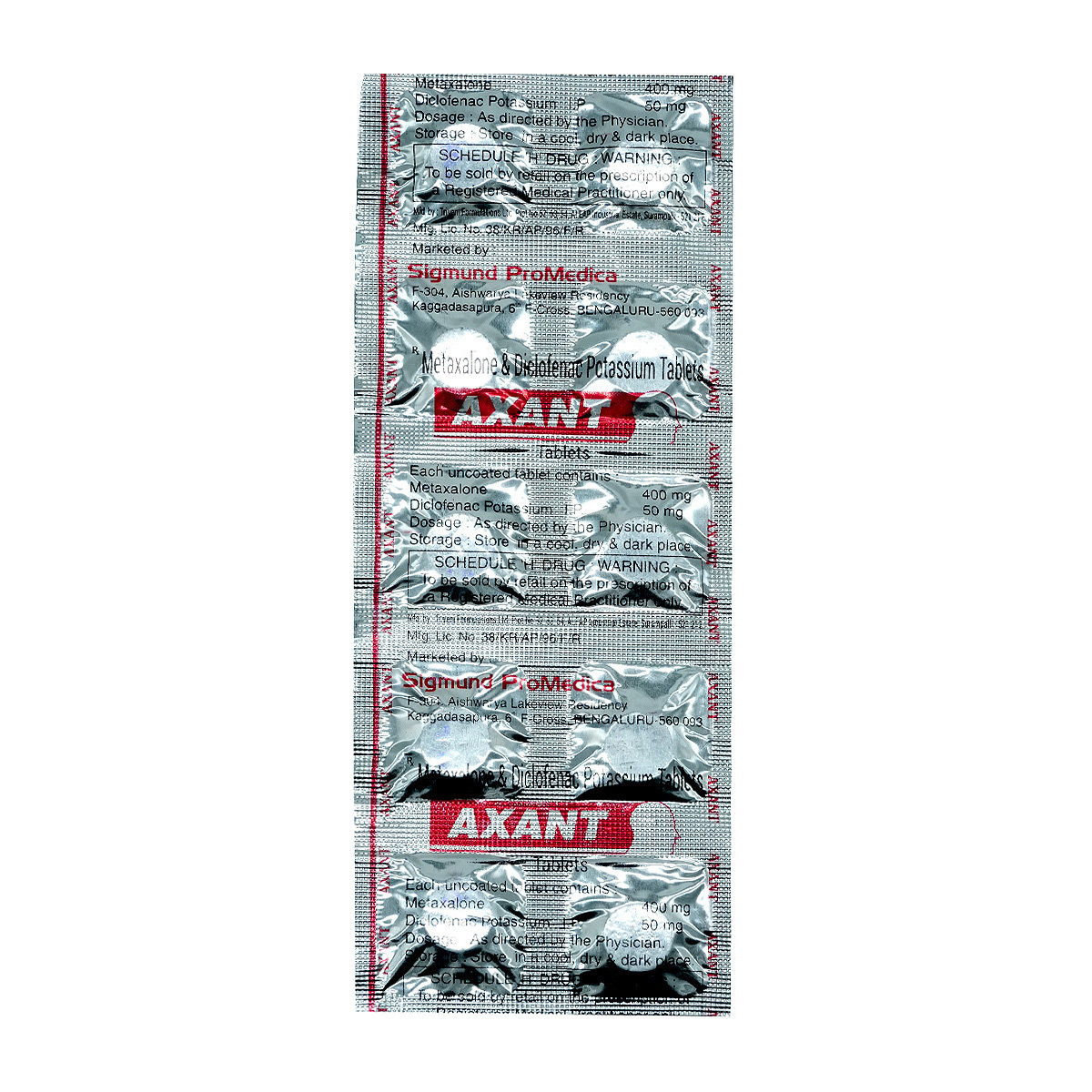
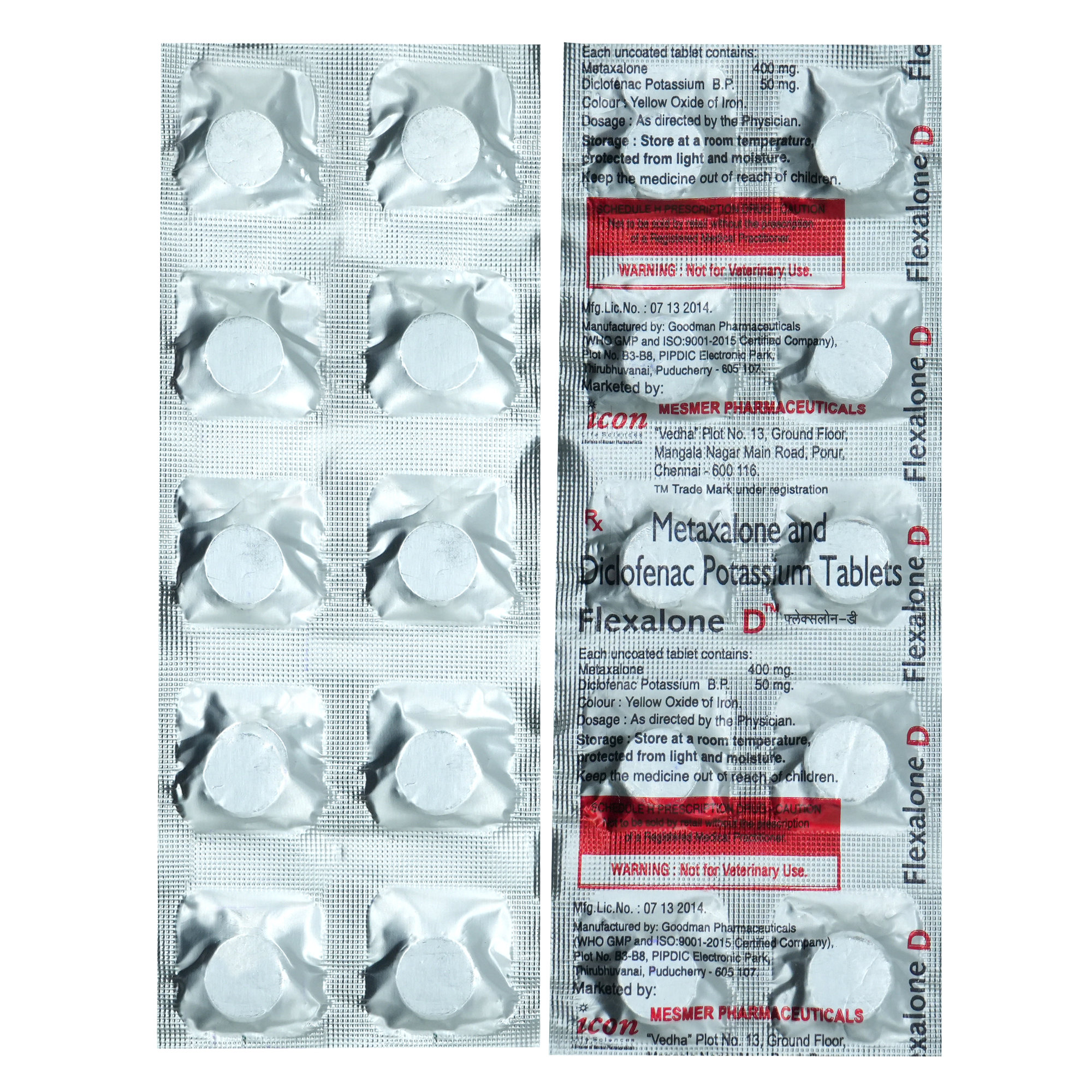
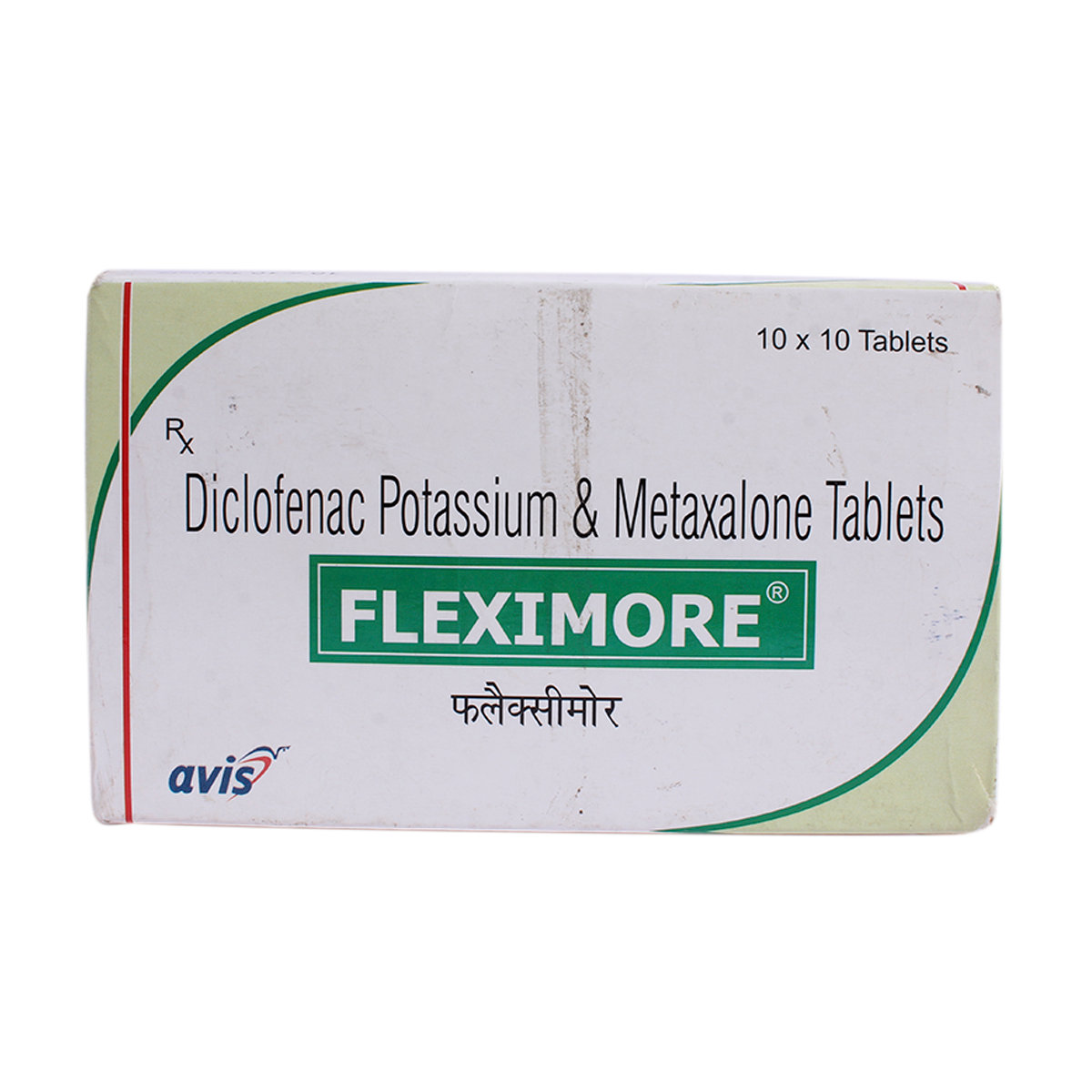
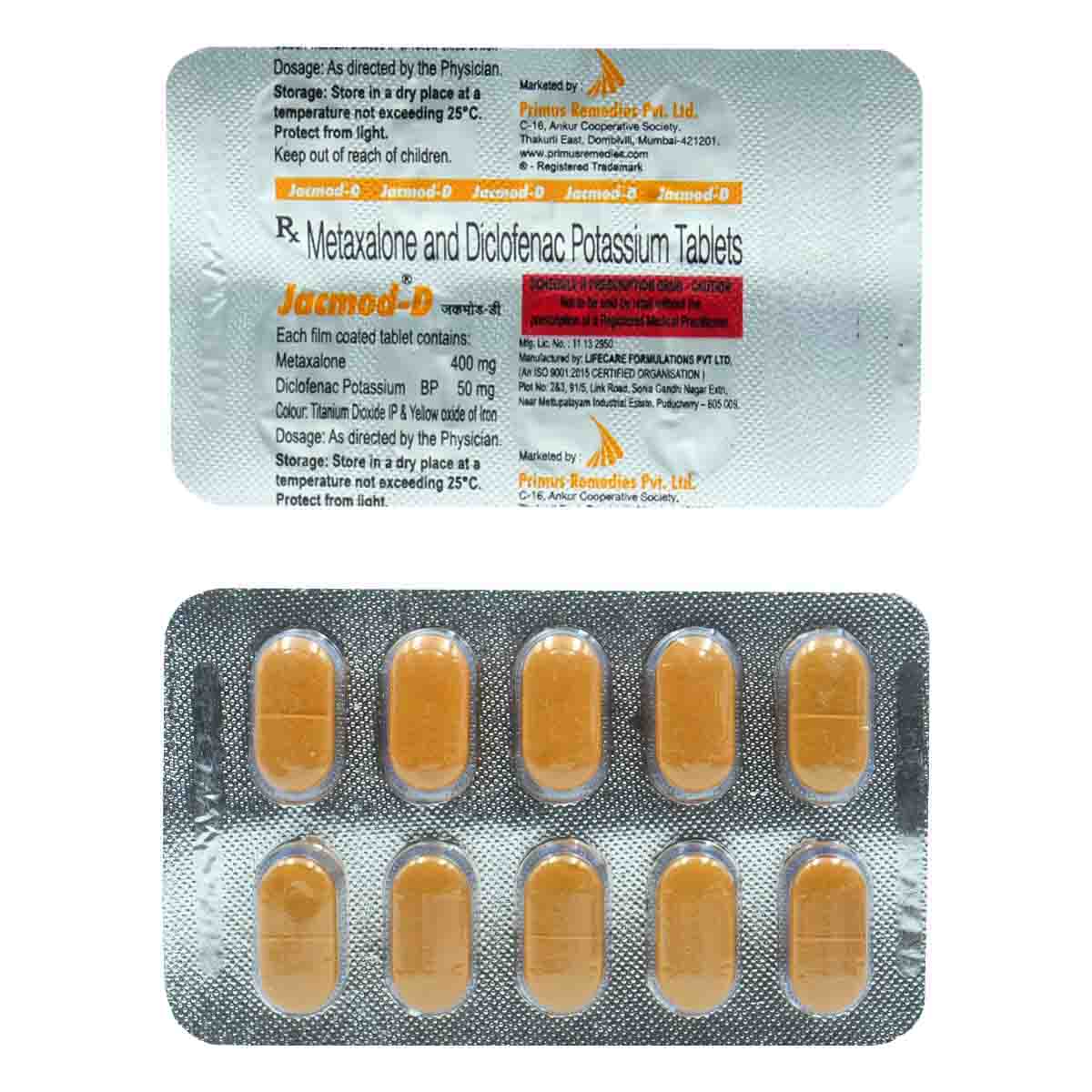


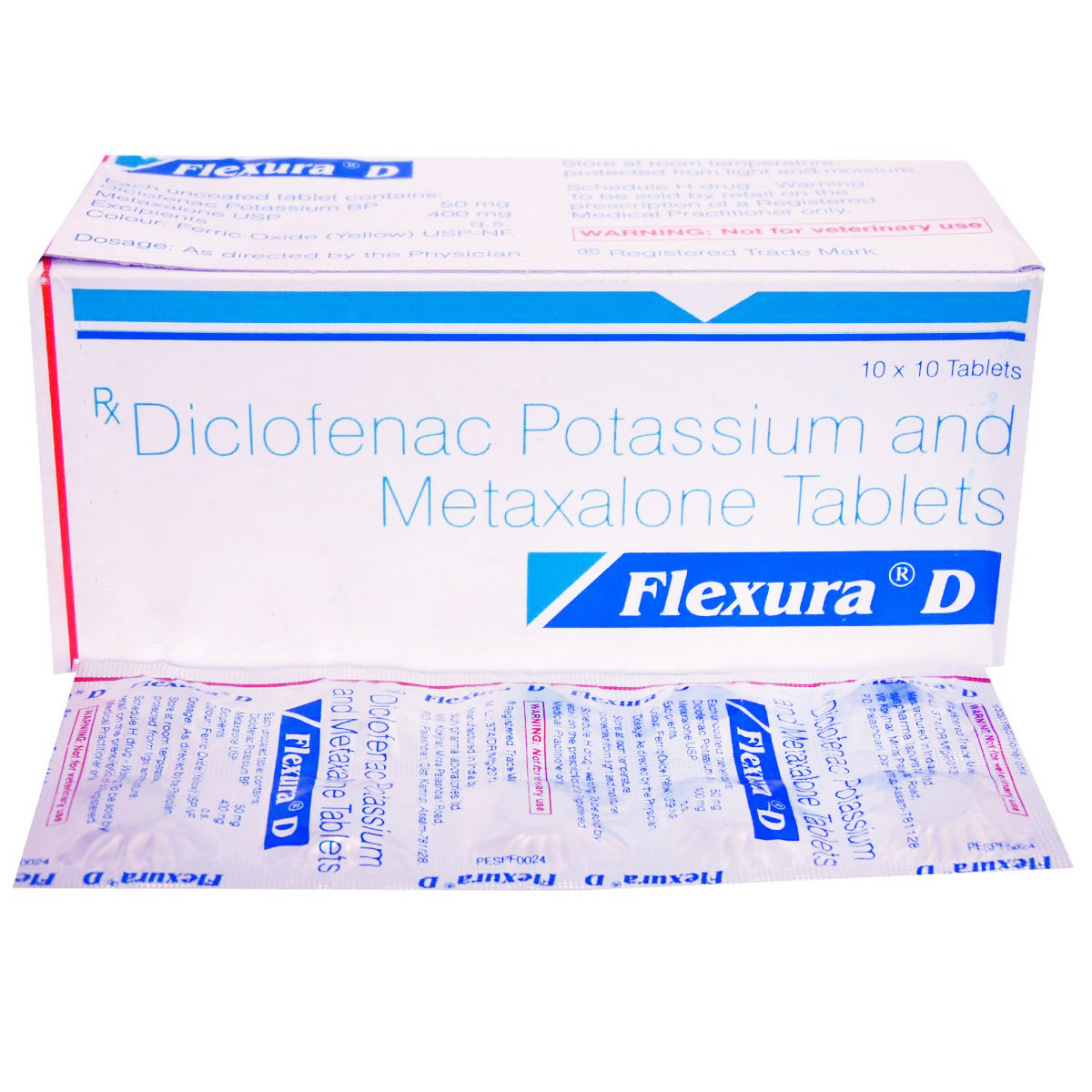
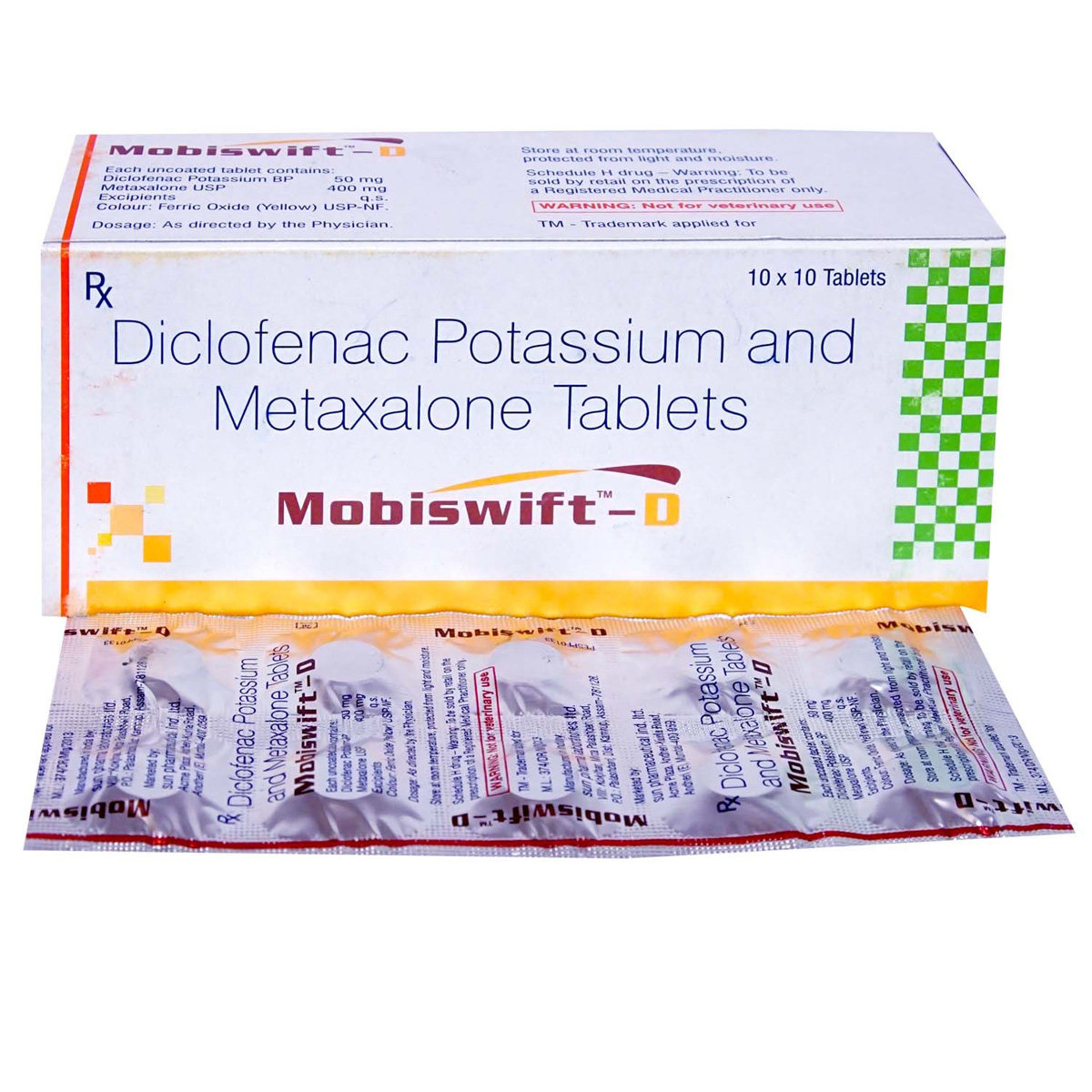


_0.jpg?tr=q-85)

